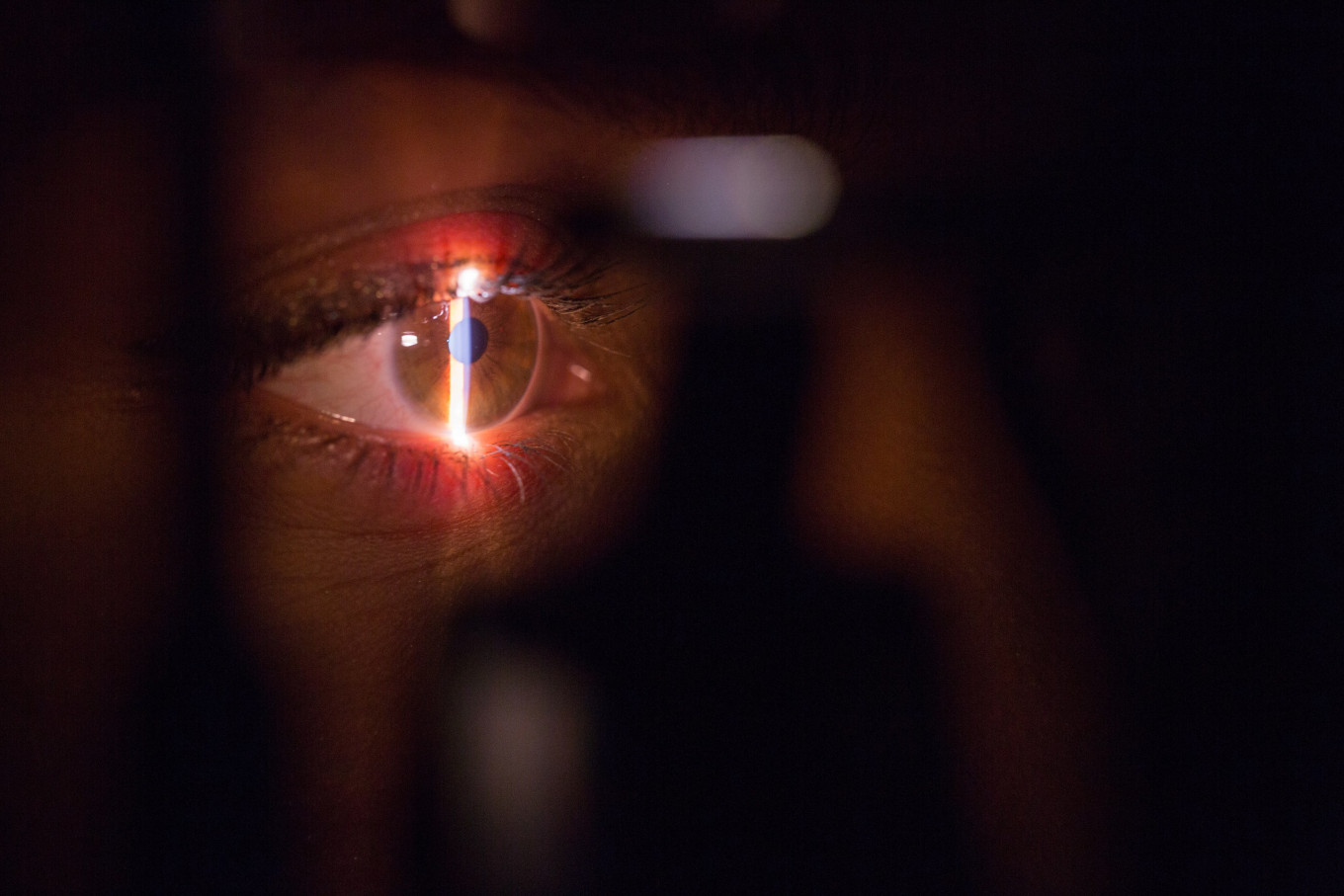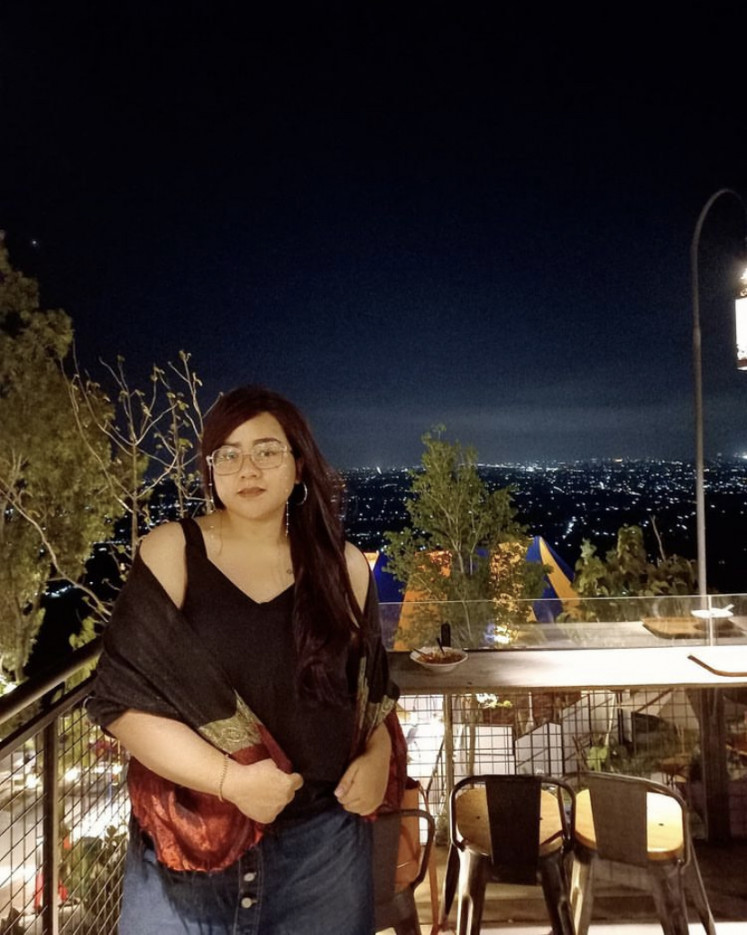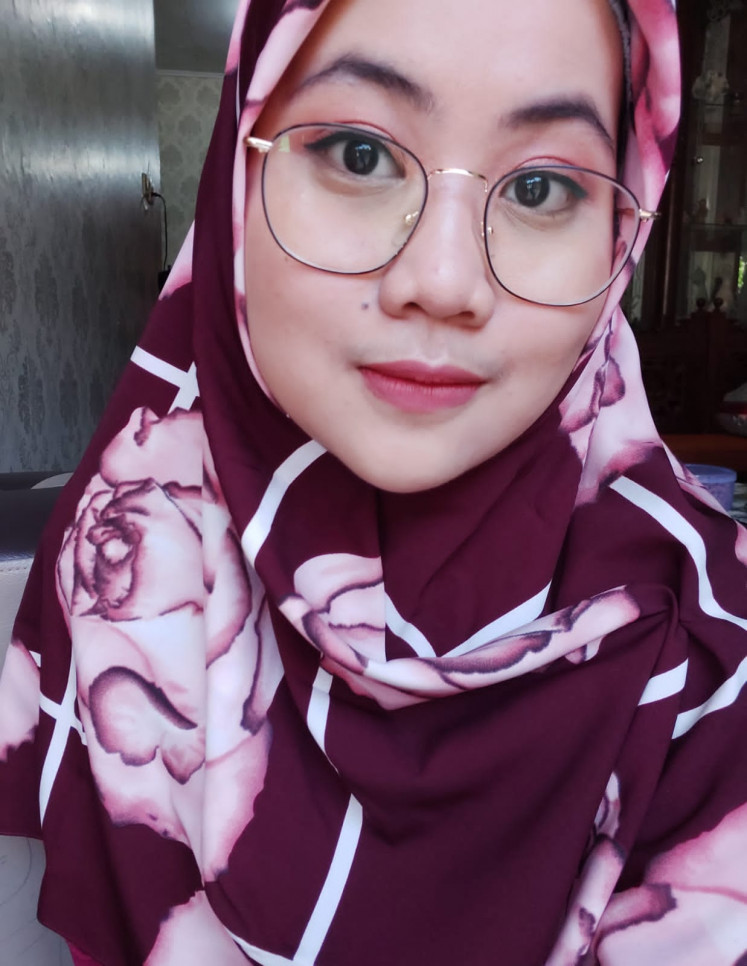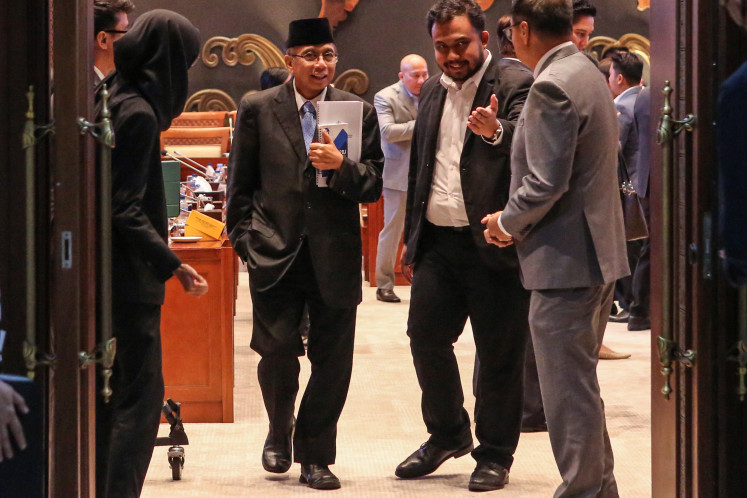Popular Reads
Top Results
Can't find what you're looking for?
View all search resultsPopular Reads
Top Results
Can't find what you're looking for?
View all search resultsGiving it all: Indonesian organ donors share their stories
Change text size
Gift Premium Articles
to Anyone
Indonesian organ donors do it to help their loved ones survive and for humanitarian concerns.
Being an organ donor in Indonesia often means dealing with misconceptions and stereotypes. For example, there are beliefs that organ donors cannot continue to live an ordinary life, and that burying those who died with missing organs violates certain religious norms.
Regardless of such issues, Fransiska Ncis, a private employee in Jakarta, is happy to donate her kidney to her sister's friend.
"This is purely for humanitarian purposes. I am not afraid at all," said the 31-year-old woman.
When asked whether or not she regrets that she now only has one kidney left, Fransiska firmly answered, "Not at all. I am happy."
For some chronic illnesses, like kidney failure, a transplant is the best therapy for patients. Unfortunately, transplants cannot always happen since the organ demands are soaring while the supply is too low.
According to the data from Dr. Cipto Mangunkusumo Hospital (RSCM) as the national referral hospital, the number of organ donors has decreased in the past few years. In 2018, there were 108 kidney-transplant procedures. The figure dropped significantly to only 63 procedures in 2019.
Near the start of the pandemic in 2020, there were only 14 procedures carried out, and all were put on hold before being resumed. After adapting to the new-normal protocol, 16 transplant procedures have been carried out.
Until now, the organ transplants that have been legalized in Indonesia include the cornea, kidney, liver, pancreas, heart, lung and intestine. Certain body parts, such as hands and face, can also be donated in some countries. Unfortunately, such procedures are not legal yet in Indonesia.
'Humanitarian purpose': Fransiska Ncis donated her left kidney for her sister's friend and never regrets her decision. (JP/Fransiska Ncis) (Courtesy of Frasiska Ncis/Courtesy of Frasiska Ncis)Life-changing
For Trisula Agita, being diagnosed with chronic kidney failure in the fifth stage made her realize the importance of having regular blood checks as well as that severe symptoms do not always accompany this disease.
"The lab results from my first medical check-up with my parents indicated that I had a kidney problem. Since I still felt healthy back then, I didn't take it seriously. However, in December, suddenly, I started to feel difficulty walking up the stairs; [I became] tired and weak quickly,” said the 28-year-old, who now spends her time helping out at her family business in Jakarta.
"On Jan. 4, I was admitted to the hospital because I couldn't urinate for two days. At that time, the doctor ordered me to do dialysis. But I didn't want to because dialysis is for life. I'm still young. I have so many things to do."
Trisula sought a second opinion from another doctor named Prof. Jose. He recommended a kidney transplant and gave her a referral to the RSCM.
"My mother decided to become a donor because we have the same blood type," she said. Initially, accepting that her mom would give her a kidney was not an easy call. It took her awhile to realize that this was a safe procedure.
"After hearing that many parents also donate kidneys to their children and can stay healthy and normal […] Finally, my family and I were okay with that. The important thing is that everyone is healthy. Moreover, medical technology is now increasingly sophisticated."
Due to the abundance of success stories and the quality of medical technology, Trisula is optimistic that both she and her mom will be able to live to their fullest soon after the operation.
"Sometimes, when I have an appointment in RSCM, my mom talks with fellow patients. Many of those who have been donors and recipients are living normally today," she said.
“What I know from the fellow patients’ stories and from the interviewer [that helps me with my transplant administrations], the recovery time for kidney recipients is between three to six months, depending on the recipient's body. However, it only takes one to two weeks for donors to get back to [normal].”
Breaking the stigma
Since her operation to donate her left kidney on Nov. 9, 2021, Fransiska has never dealt with any serious health issues.
"My quality of life feels the same. There are no complications. I have fully recovered since two weeks post-op."
Based on that experience, Fransiska hopes that the awareness to donate organs increases so more lives can be saved.
"Don't be afraid to be an organ donor, as long as doctors state that you are healthy. Don't take your organs to heaven. There are more people here who need them."
Her wish: Influenced by her father's experience who suffered from liver cirrhosis, Reyfanny Jullianty decided to donate her corneas through Lions Eye Bank Jakarta after she dies.(JP/Reyfanny Jullianty) (Courtesy of Reyfanny Jullianty/Courtesy of Reyfanny Jullianty)On the other hand, the experience is slightly different for Reyfanny Jullianty. Currently, the 25-year-old woman from Ciledug, Tangerang, is registered as a cornea donor at Lions Eye Bank Jakarta (LEBJ). It means that when she dies someday, she will voluntarily donate her cornea.
"If you say — afraid, then no. But I was more doubtful about the process that would take place when I become a cornea donor. I wondered if the process would make it difficult for my family in the future or if there was a cost involved. Of course, I don't want to burden the people I leave behind when I die."
In order to make sure that the process would not be a burden to anyone, Reyfanny did her research. Convinced by her discoveries, the student at the Universitas Pamulang discussed them with her closest friends.
"It took me five months to overcome my doubts by figuring out how the cornea-donor process works on various platforms. Then, I shared my intentions with two close friends for the first time. They were both supportive and had the same idea as I, wanting to become cornea donors."
However, a dispute ensued when Reyfanny talked to her family. It took some persuasive conversations before she eventually received her mom's blessing to become a cornea donor.
"After my two close friends, I told my intention to my sister, my mom and a very close aunt who lives in the same house. Within the family, there was a conflict between my mom and I, since she felt it was unnecessary. But, after a deep conversation about my intentions, my visions as a potential donor and how the cornea-removal process was carried out, she understood."
Her willingness to donate an organ is influenced by her father's experience, who lost his battle with liver cirrhosis.
"Ever since I was in elementary school, my father suffered from liver cancer, cirrhosis. Until the end of his life, he did not get a liver transplant. This condition is indeed based on several things, but I have always thought that in the future, I want to donate my organs so that no one feels the loss, especially the loss of a parent."
When the day comes, Reyfanny has a message for anyone out there who will get her corneas in the future.
"For prospective recipients of my corneas: Welcome to seeing the world! Many beautiful places are ready for you to see. Please take care of my corneas. While living, I tried to protect my corneas for you. Please, give me peace while watching you from up there."
ohmg












